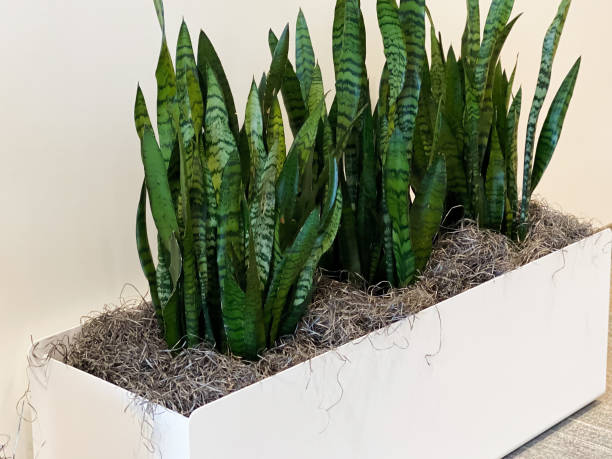Snake plants (Sansevieria), also known as mother-in-law’s tongue, are beloved for their striking appearance and resilience. With proper care, these hardy plants can enhance your indoor spaces while purifying the air. Here’s how to keep your snake plant healthy and thriving.

Snake plants adapt to various light conditions, from low light to bright, indirect sunlight. For optimal growth, place them in medium to bright indirect light. Prolonged exposure to direct sunlight may cause leaf damage.
These plants thrive in temperatures between 60–85°F (15–29°C). They tolerate dry air but prefer moderate humidity. Keep them away from cold drafts and extreme heat sources.
Allow the soil to dry completely between waterings to prevent overwatering, a common issue. In general, water every 2-3 weeks, adjusting for seasonal changes and environmental factors.
Use a pot with drainage holes to prevent water from accumulating at the roots. Pour water evenly around the base of the plant, and discard any excess from the saucer.
Snake plants thrive in well-draining soil, such as a cactus or succulent mix. Adding perlite or sand can further enhance drainage.
Feed the plant with a diluted, balanced liquid fertilizer during the growing season (spring and summer). Fertilizing every 2-3 months is sufficient.
This usually indicates overwatering. Ensure the soil dries out before watering again.
While generally pest-resistant, snake plants may occasionally attract mealybugs or spider mites. Treat infestations with insecticidal soap or neem oil.